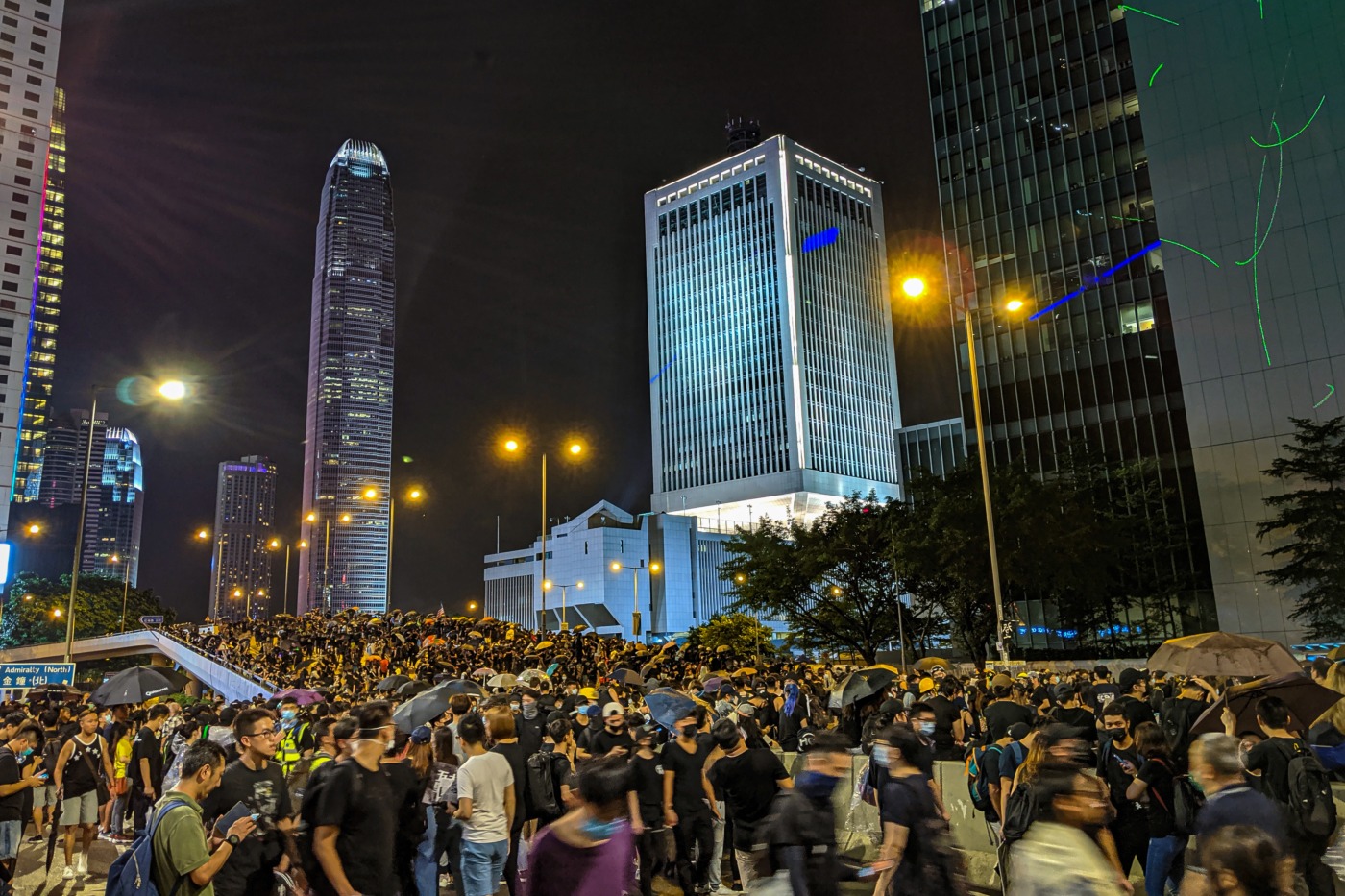The NBA, Hong Kong and how activism impacts sport
With the election of President Donald Trump, you may have noticed that American sport has become more political. There’s been a lot of controversy over sportsmen refusing to stand for the American flag, with NFL quarterback Colin Kaepernick becoming a household name for his activism. In many of these cases, the sports’ governing bodies stood by their players – but now we’ve finally found a line that they won’t cross, and the backlash has been almost as severe. The US National Basketball Association (NBA) may have ruined its reputation for political activism as it cows its head to China.
Daryl Morey, the general manager of the Houston Rockets, sent out a tweet earlier this month saying simply: “Fight for freedom, stand with Hong Kong”. Given the coverage of police officers brutally dealing with protestors, it’s hard not to have sympathy with this point of view. But the statement sparked an immediate backlash from Chinese businesses and the Chinese government, the state media has suspended the broadcast of pre-season NBA games and fan events in Shanghai have been cancelled. Two sponsors, Li-Nang and Shanghai Pudong Development Bank, announced that they were halting their relationships with the NBA and the Rockets specifically.
The NBA was then forced into damage limitation, it has spent billions of dollars to expand its presence in China, resulting in an estimated 500 million people watching NBA games in the country last year. The Rockets too enjoyed a strong connection with China, as the Shanghai-born Yao Ming was part of the team for eight years. If the NBA could find more stars like Ming, it could increase game viewership and exploit an increasingly lucrative foreign market.
The NBA released statements in English and Mandarin apologising heavily for Morey’s tweets
But all of this is now threatened by Morey’s tweet. The NBA released statements in English and Mandarin apologising heavily for Morey’s tweets, and the Rockets’ owner Tilman Fertitta immediately distanced himself from the manager, who was forced to delete his tweet and put out an apology. The NBA commissioner Adam Silver said that “these are complex issues that don’t lend themselves easily to social media”, later adding that “we are not apologising for Daryl exercising his freedom of expression”. Silver tried to sit on the fence, appeasing China whilst making the NBA seem progressive, but leaked reports suggested that team looked at sacking Morey to negate any financial loss. That his job was ever in threat for a comment standing up for freedom is shameful.
The implication of this story is unsurprising, but still pretty sad – it’s all about the money. The NBA was happy to support the Black Lives Matter movement, discuss players’ mental health or criticise President Trump because these moves play well with a liberal market base. Under Silver’s leadership, it also pulled the All-Star game out of North Carolina over a law restricting bathroom use for transgender people – Silver said in 2018 that corporations had no choice because “it’s an expectation from their customers that they’re going to take a position”.
That the NBA has been so overtly political in recent years makes this story all the worse – they’re happy to play to a liberal fan base in America because that’s good for business, but they’re willing to cave to an autocratic foreign government when it threatens the Chinese income. An American CEO, given the option of publicly and enthusiastically supporting freedom, has chosen money instead.
Human rights shouldn’t be for sale and the NBA shouldn’t be assisting Chinese communist censorship
Big names on both sides of the aisle have criticised the NBA for its actions. Republican senator Ted Cruz said that “human rights shouldn’t be for sale and the NBA shouldn’t be assisting Chinese communist censorship”, while Vox’s Aaron Rupar described Morey’s apology as a “hostage video” and an “embarrassment”. In a striking tweet, the former Obama advisor Ben Rhodes said “Just consider that the NBA is suggesting that supporting democracy and human rights ‘does not represent’ the NBA or the values that the league supports. What values does the league support?” The move has also not gone down well with American NBA fans. In a time of increased tension with China and with free speech, an important issue in the upcoming election, many don’t see why the NBA would damage its reputation by giving in.
The NBA now has a choice, to accept the Chinese censorship, keeping its Chinese market but alienating players and its American fans or refusing to bow down and standing up for freedom. I’d like to think that the choice is painfully clear but I fear that the allure of the bottom line will prove too much, and that could have chilling consequences for political activism and freedom of speech in sport.

Comments